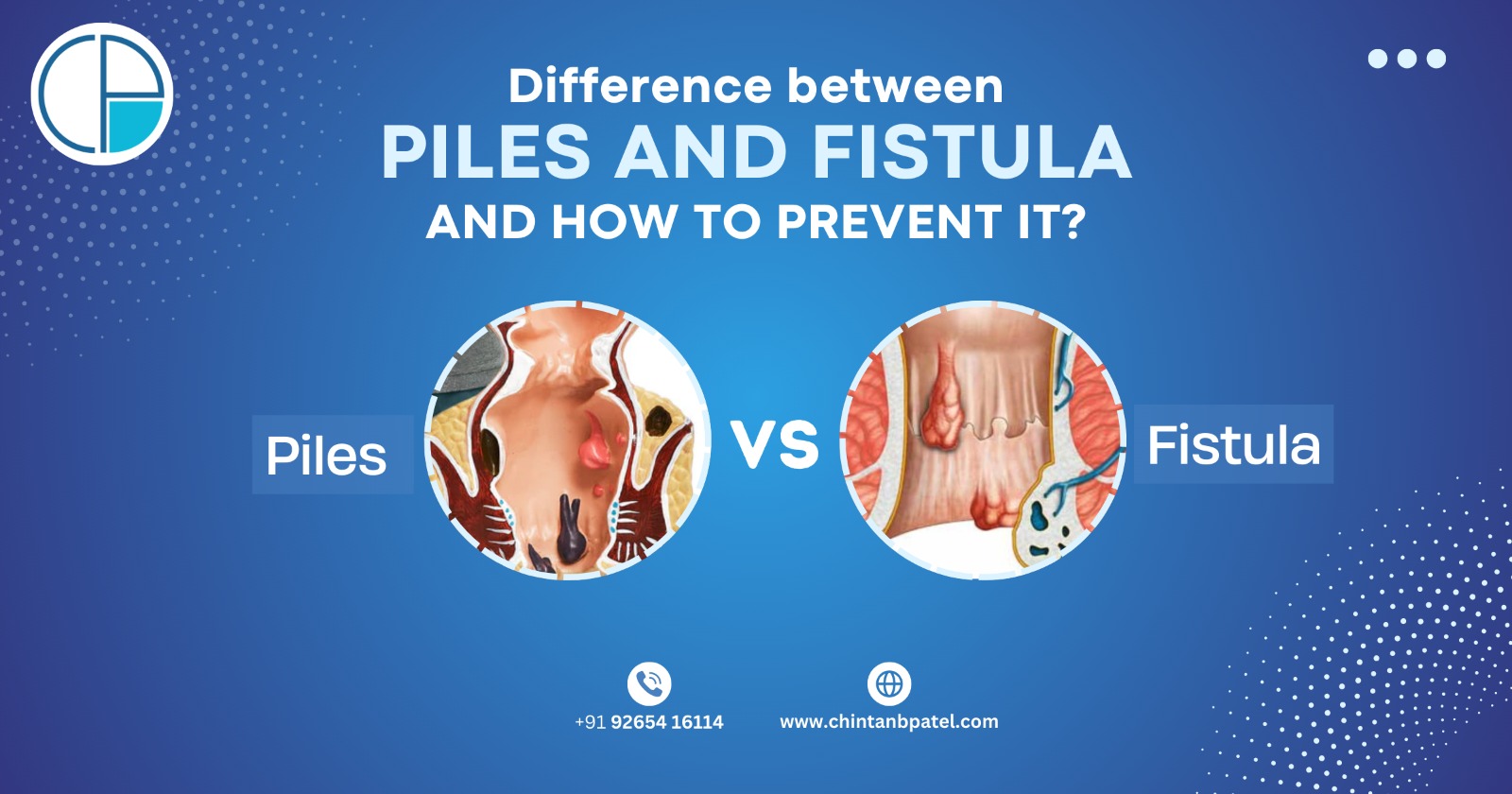Piles and Fistula are two common disease that affect the anus and rectum. While these two conditions may seem similar, they are distinct and require different forms of treatment. In this blog, we will discuss the differences between Piles and Fistula, as well as their prevention and conclusion.
Piles
Piles, also known as Hemorrhoids, are swollen veins in the anus and lower rectum that can cause discomfort, itching, and bleeding. Piles can be internal or external, with internal piles occurring inside the rectum and external piles developing outside the anus. Piles are caused by increased pressure in the veins of the anus, such as during pregnancy or straining during bowel movements.
Fistula
Fistula, on the other hand, is a small channel that develops between the anus or rectum and the skin surrounding the anus. It is usually the result of an infected anal gland that develops into an abscess. If the abscess does not heal, a fistula can develop. Symptoms of Fistula include pain, swelling, and discharge of pus or blood from the affected area.
How to Prevent from Piles & Fistula?
While Piles and Fistula may seem similar, they require different forms of treatment. Piles can often be treated with home remedies such as increased fiber intake, warm baths, and over-the-counter medications. In severe cases, Piles or Hemmorhoids surgery may be necessary. Fistula, on the other hand, usually requires Fistula surgery to remove the infected tissue and repair the channel between the anus and skin.
Preventing Piles and Fistula requires a few lifestyle changes. Maintaining a healthy diet rich in fiber can prevent constipation, which can increase pressure on the veins in the anus and cause Piles. Regular exercise can also improve bowel movements and reduce the risk of Piles. Here we share 5 NATURAL SECRETS – PILES TREATMENT WITHOUT SURGERY. To prevent Fistula, it is important to maintain good hygiene in the anal area and seek medical attention for any signs of infection, such as abscesses.
Conclusion
In conclusion, Piles and Fistula are two distinct conditions that require different forms of treatment. Piles are swollen veins in the anus and lower rectum, while Fistula is a small channel that develops between the anus or rectum and the skin surrounding the anus. Prevention of these conditions requires maintaining a healthy lifestyle, such as a high-fiber diet and regular exercise, and good hygiene in the anal area. Seeking medical attention for any signs of infection is also crucial. By following these preventive measures, one can avoid these uncomfortable and sometimes painful conditions.

